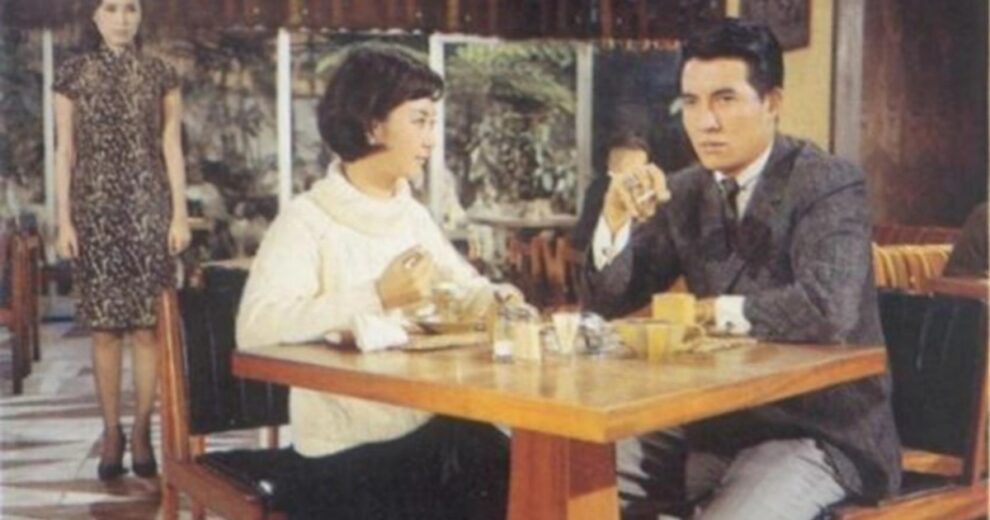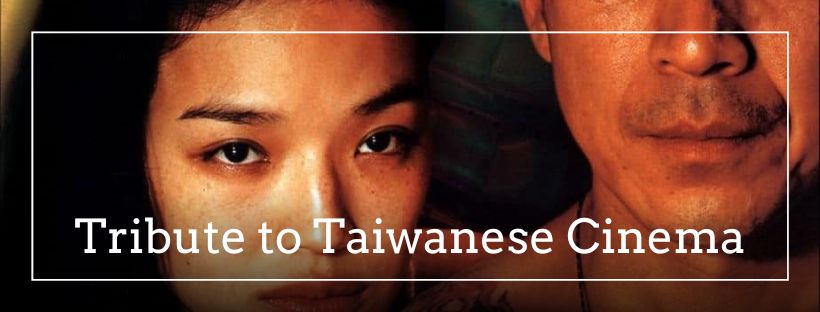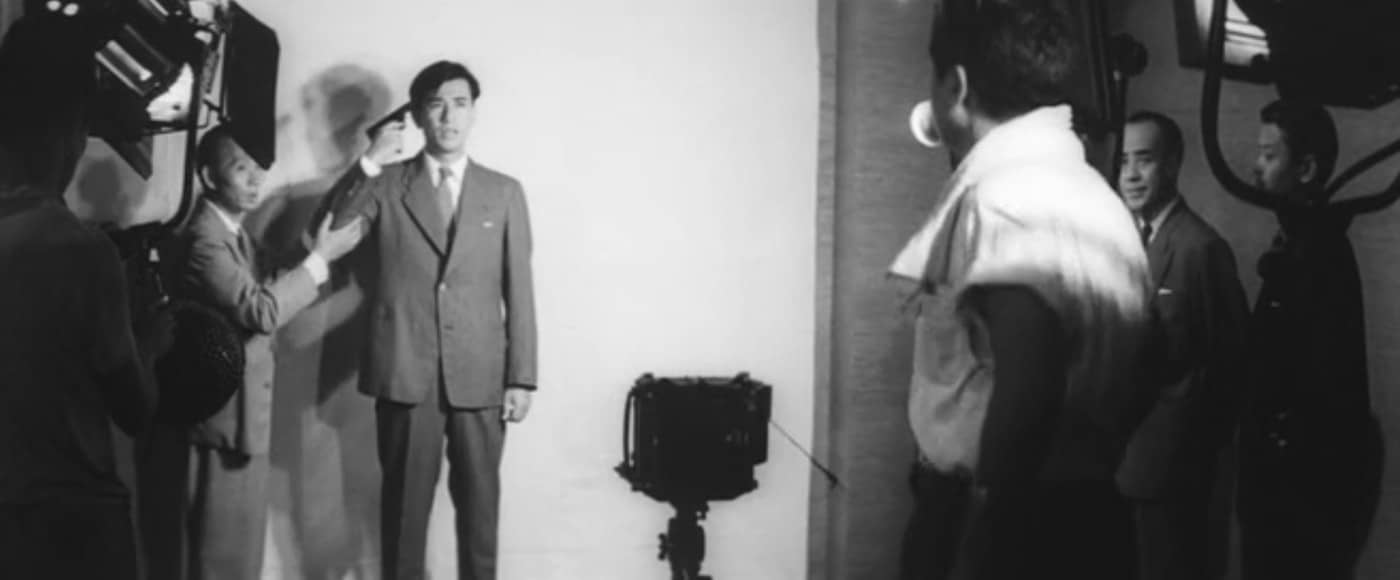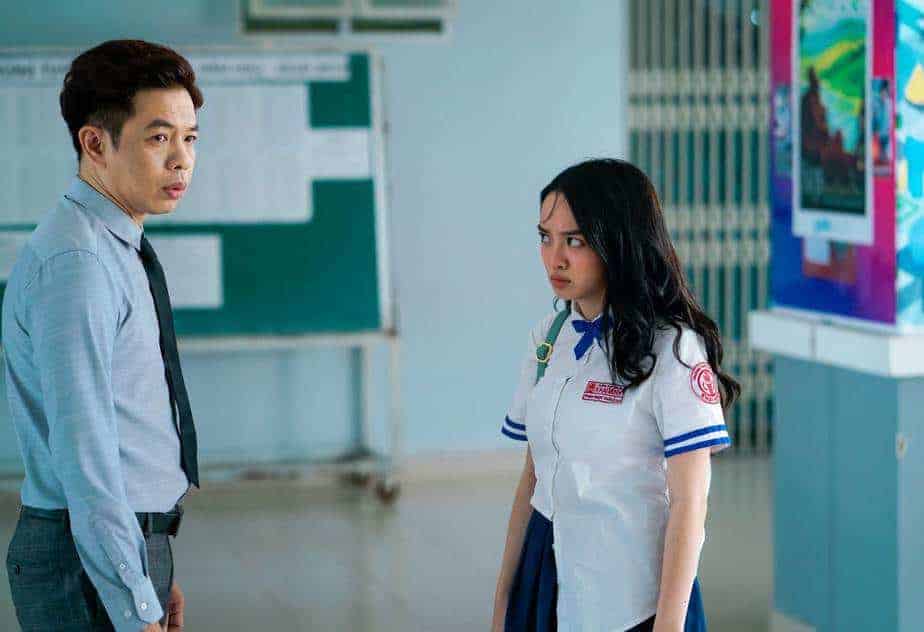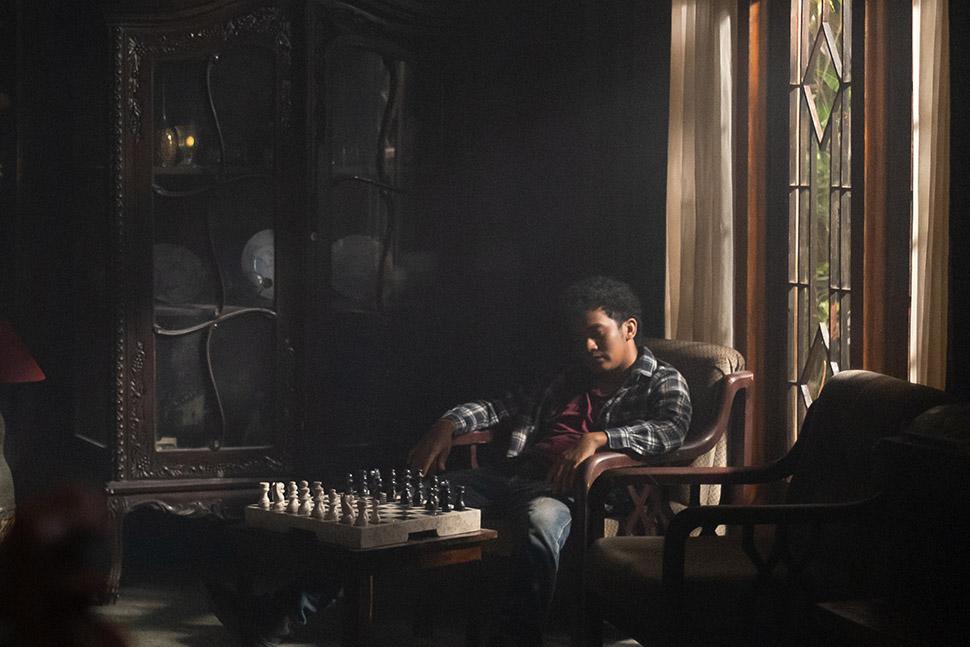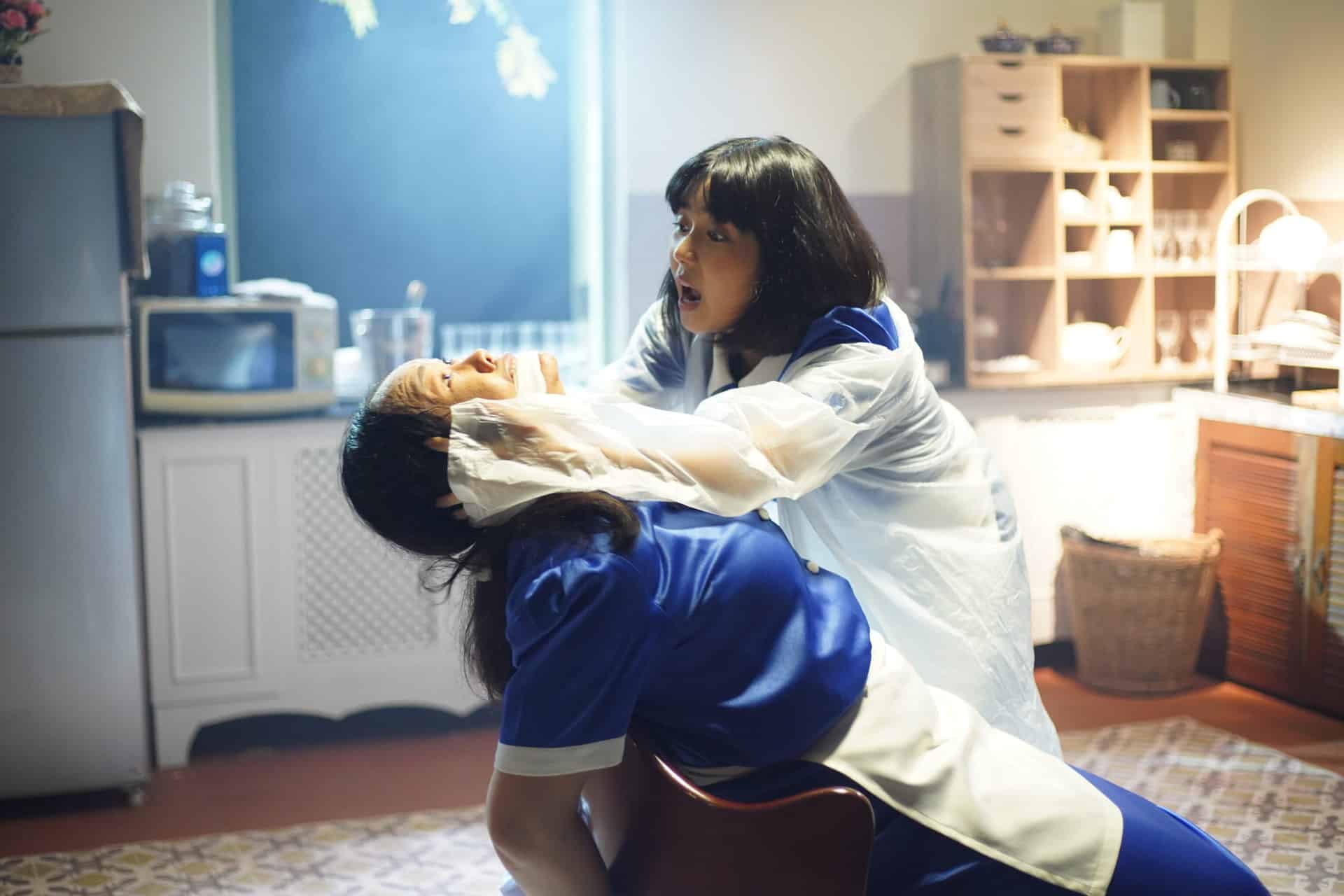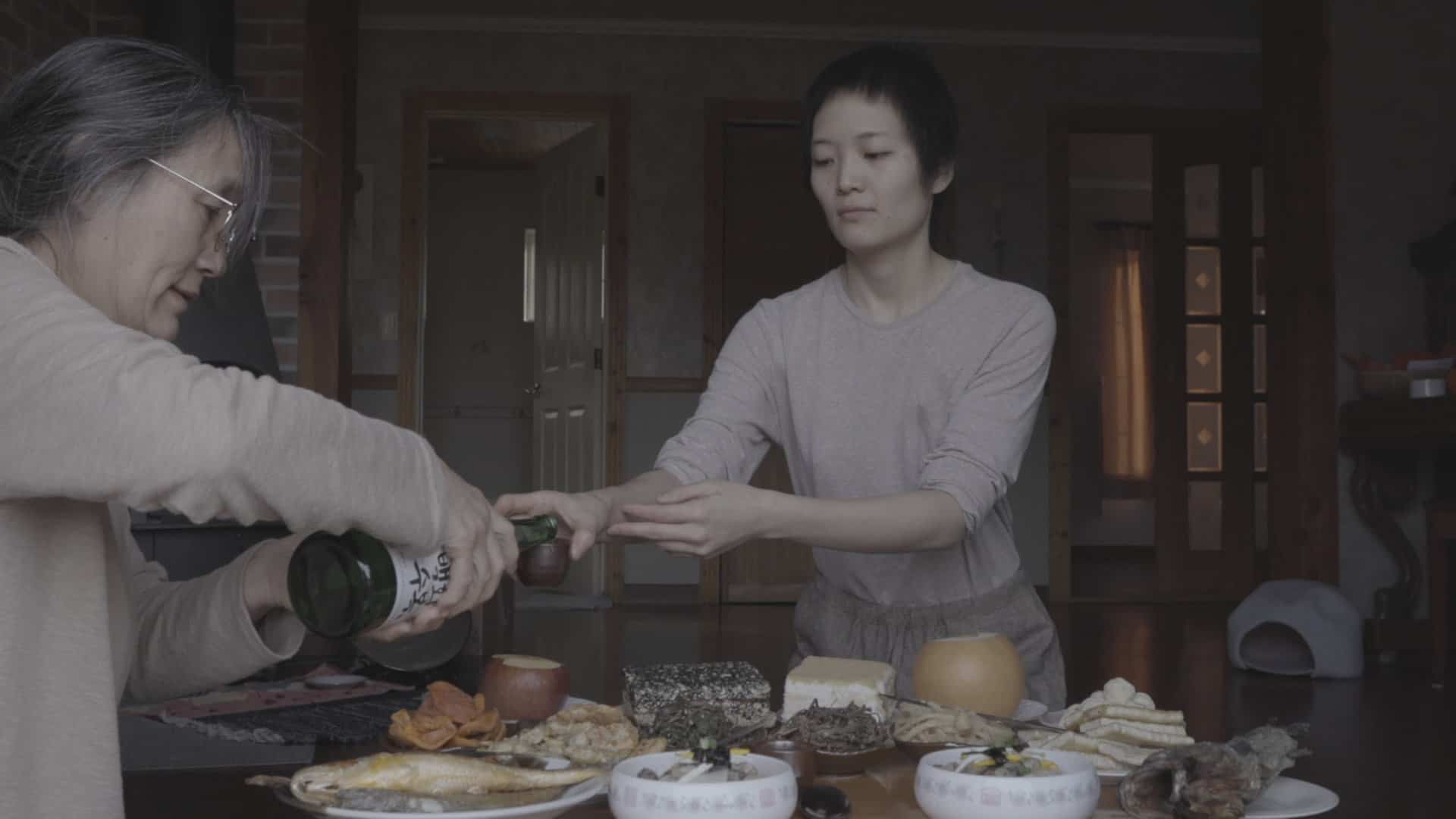“Lonely 17” was Pai Ching-jui's first major work in the Central Motion Picture Corporation (CMPC) after his return from Italy and his studies at Centro Sperimentale di Cinematografia. The movie was a great success, taking the Golden Horse Film Festival by storm, winning 6 awards, including ones for Best Director, Cinematography and Editing. It was also one of the first movies to deal with female mental illness in the country.
The story is based on Kenneth Pai's homonymous novel and revolves around Tan-mei, a 17-year-old student coming from a wealthy family. Tan-mei is also the best student in the classroom, one whom her professors are sure will thrive in the future, and a teacher's pet whom other students despise. Although essentially a model student and daughter, Tan-mei harbors a secret fondness for her sister's fiance, Feng Tse, who is also her cousin. Feng Tse is also a womanizer who keeps a mistress on the side, who thinks he will marry her at some point, although he uses her only for sex, while aiming at becoming part of Tan-mei's rich family. A series of rather tragic events, starting with Tan-mei's visit to the hotel Feng Tse is sharing with his mistress, a fight between the two lovers, and an invitation by the 17-year-old ot her house end up with him dead and Tan-mei gradually losing her grip with reality, something that also happens to the mistress, eventually.
Pai Ching-jui directs a film that is split into two, with the aforementioned events providing the dichotomy. The first part deals with a teenager in love in the most inappropriate way, to a man who is, evidently, an opportunist, looking to exploit his looks in order to become rich. His shameless exploitation of the women around him is a direct comment to the place of women in the then Taiwanese society, which finds its apogee in the reaction of his fiancé, when she hears that he will not marry her, thus crumbling her whole world. What follows next could be perceived as a crime-and-punishment aspect, but the overall remark, that ‘this is a man's world' is the one that permeates the whole story.
From a romantic/erotic drama, which shows a tendency to move towards the melodrama, the second part changes rather significantly, into a psychodrama with intense melodramatic elements, focusing on the downward spiral of the protagonist. The context here is even richer than the first part, as is the cinematic approach. In that fashion, the scenes that highlight how Tan-mei loses her grip on reality are as impressive as the one featuring her electroshock therapy, with the latter being among the most impactful scenes in the whole film. The ones where she is aimlessly roaming the streets also unfold in the same fashion, with the visit to the Christian church that does not offer any solace offering a rather direct comment.
Check also this interview
That the people around her have no clue what is happening to her, instead deciding to put her into a mental institute where she does not actually receive any proper help, is another pointed remark, highlighting the ignorance of both parents for their children and regarding mental issues. That she finds solace in an elderly man in the asylum could be perceived as a comment regarding the past, although considering its nature, it could go both as referring to the previously more happy times, or even more ignorant. That the mistress also ends up having the same fate, cements the overall approach here, which is quite intensely accusatory.
The awards the movie received reflected its high production values. Lin Tsan-Ting's cinematography is outstanding throughout, highlighting the various settings in a way that intensifies their overall meaning, as for example in the onerousness of the shock treatment scenes or the eagerness of the protagonist as she changes attires in front of the mirror. Shen Yeh-kang's editing highlights Tan-mei's loss on reality through the succession of scenes that show the reality or what she is thinking in her head, while the fast pace definitely suits the overall aesthetics here.
Tan Pao-Yun as Tan-mei is great throughout, with the transformation she undergoes being quite well handled, although there are moments where her acting is somewhat excessive. Ko Chin-Hsiung as Feng-Tse plays the casanova/villain with gusto, with his interactions with his women highlighting the chemistry of the cast.
“Lonely 17” is an excellent movie that manages to make its multileveled comments while remaining entertaining from beginning to end, and a film that has definitely stood the test of time.


